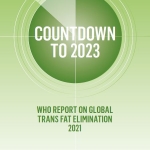 Alcoholic beverages have been produced and consumed for thousands of years. Attitudes and policies have varied from total prohibition to aggressive marketing, including targeting specific groups e.g. young women. Recent years have seen a worldwide rise in sales and consumption of alcoholic beverages, exacerbated by pandemic lockdowns and their psychological effects. This raises concern about the potentially harmful effects of alcohol both to the drinker and to society.
Alcoholic beverages have been produced and consumed for thousands of years. Attitudes and policies have varied from total prohibition to aggressive marketing, including targeting specific groups e.g. young women. Recent years have seen a worldwide rise in sales and consumption of alcoholic beverages, exacerbated by pandemic lockdowns and their psychological effects. This raises concern about the potentially harmful effects of alcohol both to the drinker and to society.
It is important to understand that ethanol in all alcoholic drinks is a toxic substance, which the body metabolizes and eliminates using several liver enzymes. Depending on factors such as sex, age and genetic variation, some people are more vulnerable to the harmful effects of alcohol than others particularly children and youth, women and especially pregnant women. Many health conditions are affected by alcohol: heart health, cancer risk, but also others like injuries, self-harm and communicable diseases. It is not possible to have one recommendation regarding amounts of alcohol for all people. Those with high blood pressure, cardiomyopathies (heart muscle diseases) or rhythm disturbances as well as other health conditions may be harmed by alcohol and therefore should consult with their physician about how much (if any) alcohol they might consume.
In order to minimize the harmful effects of alcohol to individuals and society, the InterAmerican Heart Foundation advises that anyone who does not drink should not initiate consumption, while those who do drink should minimize consumption and consult with their physician about the amount consumed as well as their pattern of drinking. This is especially important for youth whose developing brains put them at higher risk of harm from exposure to alcohol.
IAHF is examining policies to prevent and reduce the harm from alcohol in several Latin American and Caribbean countries and a report will be available soon.


